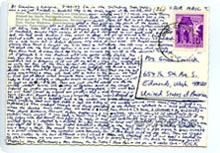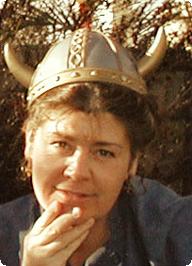by Rick Steves
Travel can make you a poet. Travel can be spiritual. You meet people on the road you’d never meet otherwise. Traveling rearranges your cultural furniture, challenging truths you assumed were self-evident and God-given. By traveling, you learn not only about the people and places you visit — you learn about yourself.
But without capturing your thoughts on paper, the lessons of travel are like shooting stars you just missed…and butterflies you thought you saw. Collecting intimate details on the road and then distilling them into your journal sharpens your ability to observe and creates a souvenir you’ll always cherish.
Choose your travel journal carefully. I prefer a minimalist journal, light yet stiff enough to protect the pages and to give me something solid to write on (since I often write on the fly without a convenient table). I like invitingly empty pages — not pages decorated with extra literary frills and verbose doodads. It’s my journal, not someone else’s chance to decorate my observations with cute quotes, clever tips, and handy reminders. I use black ink or a mechanical pencil. Nothing should compete with the simple words. Avoid spiral notebooks — they fall apart quickly. A bound book will become a classic on your bookshelf.
The key to good journaling is being both observant and disciplined…to take the time to notice what you’re noticing and then to jot down your thoughts. I use a tiny pocket-sized notepad to capture the moment right there. Then, when I have time, I pull out my actual journal, sort through those notes, and organize them into something vivid and fun to read.
Thinking back, it seems I’ve always had a desire to capture my discoveries and eurekas in a journal. On my first trip (as a 14-year-old), I collected and logged my experiences in a file of several hundred postcards, each numbered and packed with my notes.
Every trip I took inspired my passion for filling up an “empty book,” even back when I was simply a footloose, fancy-free vagabond with no intention of being a travel writer. The flight over came with a ritual personal inventory of where I was at psychologically as I began the trip, and the flight home came with a similar introspective wrap-up. And each night in between I wouldn’t drift off to sleep without collecting my day’s experiences, discoveries, and thoughts into that book. The book, which started empty, always came home full.
Hiking deep into a misty English moor as a teen-aged traveler, I wrote, “Long-haired goats and sheep seem to gnaw on grass in their sleep. We were lost in a world of green, wind, white rocks, and birds — birds singing, but not present. Then we found the stones. Standing in a circle they have waited for endless centuries — not moving — waiting for us to come. And in stillness, they entertained. After being alone with our private stone circle, Stonehenge — with its barbed wire, tour buses, and port-a-loos — won’t quite make it.” It was on the boat to France the next day that I worked on those rough notes, and realized that finding hidden bits of Europe and bringing them home through my writing was what I wanted to do for a living.
Now, three decades later, I still snare those happenings as they flit by, eager to see what I can build with all that fun raw material. On my last trip to Helsinki, I was so flustered by the language barrier in an extremely local sauna that I didn’t know how to get a dry towel. Sitting in the corner to air dry, I decided to pass the time observing and jotting down ideas for my journal:
“People look more timeless and ethnic when naked with hair wet and stringy. The entire steamy scene was three colors: gray concrete, dark wood, and ruddy flesh. Surrounded by naked locals (each with a tin bucket between his legs — to use to splash cool water on his face), there was absolutely no indication of what century I was in. But from the faces, it was perfectly clear: this was Finland.”
With those notes, I can revisit that sauna for the rest of my life. Enjoy the physical act of putting pen to paper, gathering new experiences, lessons, thoughts, and feelings while they are fresh and vibrant.
If your life is a canvas, travels bring new color. And journaling is like being a painter who stands back every once in a while to understand and enjoy the art as it unfolds.
If you want to be a travel writer, get a journal and take notes on the road like Rick Steves.
Rick Steves writes European travel guidebooks and hosts travel shows on public television and public radio. Learn more at www.ricksteves.com. E-mail him at rick@ricksteves.com.








